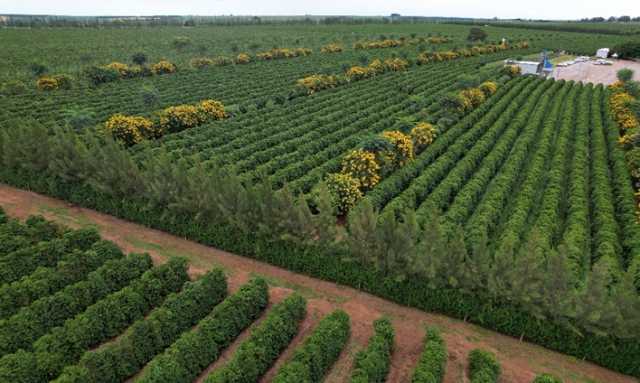PATROCINIO, Brazil – In a world facing constant climate change, global crises, and shifting consumer behaviors, the agriculture and livestock sectors are expected to undergo significant transformations driven by technological advancements and changes in social and environmental demands in the coming years.
“In the next few years, coffee farming is expected to be marked by the integration of advanced technologies, sustainable practices, and adaptation to changing market demands, which will be crucial to ensuring the sector’s efficiency, sustainability, and competitiveness.
Precision agriculture, intelligent irrigation systems, digital platforms, big data, and a circular economy are some examples that will be more present in the producer’s daily life,” says Simão Pedro de Lima, Executive Director of the Cerrado Coffee Growers
Cooperative (Expocacer).
The value of the coffee market is estimated at US$132.13 billion in 2024 and is expected to reach US$ 166.39 billion by 2029, growing at a CAGR of 4.72%, according to a survey by the intelligence firm Mordor Intelligence.
The research also highlights that consumers are migrating towards traceable coffee with regenerative practices, and consequently, major players are engaged in product innovations to maintain a stronger position in the market.
True sustainability
The intensive use of drones and sensors to monitor crops, allowing for more efficient management of resources such as water and fertilizers, will be essential in coffee farming over the next decade.
According to Expocacer, regenerative coffee farming with a
focus on techniques that restore soil health, as well as the implementation of practices that minimize the carbon footprint, including the use of renewable energy and the management of organic waste, should become common “actions” among coffee farmers.
Techniques used to develop varieties that are more resistant to pests and diseases, in addition to improving productivity and nutritional quality, will become fundamental for the survival of plantations amid climate change.
Technology
Technology is expected to profoundly mark coffee farming in the coming years. “We will see more use of software tools that help farmers make data-driven decisions, from weather forecasting to financial management.
The collection and analysis of large volumes of data to identify patterns and trends, helping to predict problems and optimize production will also be observed, as well as the use of autonomous tractors and harvesters, capable of operating without human intervention, which will increase efficiency and reduce operating costs; in addition to the integration of connected devices that collect and analyze data in real-time, improving decision-making,” says Simão.
Consumption and economy
Agricultural and livestock companies tend to control more stages of the production chain, from production to distribution, to improve efficiency and traceability. The focus on reusing agricultural and livestock waste, transforming it into new products or energy
sources, should have a major highlight in the sector.
According to Expocacer, the growing demand for low-carbon products and foods that offer additional health benefits tend to be increasingly greater, so it will be possible to see a greater focus on training farmers with new technologies and sustainable practices
through continuing education programs and practices, to meet the new consumer demands in the best way.
“Government support policies for the adoption of advanced technologies and sustainable practices, including subsidies and tax incentives, will be fundamental for this new scenario in coffee farming, contributing to a prosperous future for the sector,” concludes
the Executive Director of Expocacer.
About Expocacer
Founded in 1993 and located in Patrocínio, Minas Gerais, the Cerrado Coffee Growers Cooperative (Expocacer) promotes the quality of coffee and the work of its members in Brazil and worldwide through significant socio-environmental initiatives and the stimulation
of the regional economy. The cooperative’s infrastructure includes two warehouses with a capacity of over 1 million bags. Currently, it serves approximately 740 producers and exports to more than 35 countries across 5 continents.


















